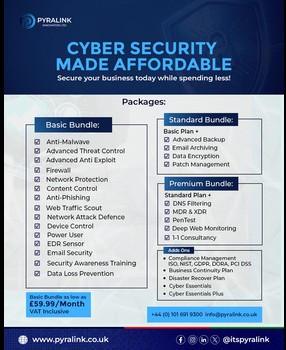Shop Safely This Holiday Season: Cyber Protection Tips for Online Shopping
The holidays are a time for joy—and online shopping sprees. But with increased shopping comes a higher risk of cyber threats. From phishing scams to fake retailers, hackers use every trick in the book to exploit unsuspecting shoppers. This guide will show you how to stay safe while hunting for the best deals online, so you can protect your personal information and enjoy the season without stress.
Understanding Cyber Threats During Holiday Shopping
Online shopping simplifies holiday preparation, but it also opens the door to cyber criminals. These threats become more prevalent during the holidays, targeting both new and experienced online buyers.
Phishing Scams
Phishing scams are an old trick with a seasonal twist. Cybercriminals send fake emails, often disguised as promotions or delivery updates, to steal personal data. Have you ever received an email with a “Buy One Get One Free” offer that seemed too good to be true? It probably was. These scams often use urgency, like "limited-time offers," to make you act fast without thinking. For more on spotting such scams, Holiday Online Shopping Tips explains how to stay alert.
Malware and Ransomware
Clicking on unfamiliar links in emails or advertisements can download malware to your device. Malware might steal sensitive data or even lock your system until you pay a ransom. During the holidays, hackers exploit increased shopping activity by embedding their traps in fake sites or email promotions.
Fake Online Retailers
Fake websites appear professional, often mimicking trusted brands. They lure shoppers with unbeatable deals, only to steal payment information or deliver counterfeit goods. Looking closely at domain names and customer reviews can help you spot these fraudsters. Five Threats Targeting Retailers This Holiday Shopping dives deeper into this issue.
Essential Cyber Protection Tips for Online Shopping
You don’t need to be a cybersecurity expert to shop safely. These straightforward steps will keep your data out of hackers’ hands.
Use Strong and Unique Passwords
Weak passwords are an open door for hackers. A strong password includes a mix of uppercase, lowercase, numbers, and symbols. Avoid using the same password across multiple sites. Consider using a password manager to streamline this process.
Enable Two-Factor Authentication (2FA)
2FA adds an extra security layer by requiring a code sent to your device in addition to your password. This step makes it harder for intruders to access your account, even if they crack your password. Mobile Security: Tips for Keeping Your Smartphone Safe highlights why enabling 2FA is crucial.
Secure Payment Methods
Opt for secure payment gateways like PayPal or use virtual cards when shopping online. Unlike debit cards, these methods reduce your exposure in case of a breach. It’s a simple switch that offers significant peace of mind.
Avoid Public Wi-Fi for Online Shopping
Public Wi-Fi networks are a hotbed for hackers. They can easily intercept your data, including login credentials and credit card details. If you must use public Wi-Fi, connect through a virtual private network (VPN) to encrypt your information.
Keep Software Updated
Outdated software has vulnerabilities that cybercriminals exploit. Regularly updating your system, browser, and apps ensures you stay ahead of potential threats. Think of updates as patching cracks in your digital armor.
Recognizing and Avoiding Holiday Scams
Staying vigilant can save you from falling into a scammer’s trap. Here’s how to navigate the busy holiday season safely.
Identifying Suspicious Emails and Links
Emails riddled with spelling errors, or containing vague subject lines, are major red flags. Hover over any links to check their actual URLs before clicking. Legitimate deals won’t pressure you to act impulsively or provide sensitive details.
Researching Retailers and Deals
Before making a purchase, verify the retailer’s credibility. Check their website for security certificates (look for “https://” in the URL) and read online reviews. Too-good-to-be-true deals often are. Holiday Deals, Not Holiday Steals provides additional tips on avoiding questionable online retailers.
Conclusion
As the holidays approach, a bit of caution can go a long way in protecting yourself from cyber threats. By applying the tips covered here—like using secure passwords, enabling 2FA, and avoiding public Wi-Fi—you'll reduce the risks tied to online shopping. Stay informed, stay safe, and enjoy a worry-free holiday season. After all, the only thing you should worry about is finding the perfect gift—not losing your personal data.

